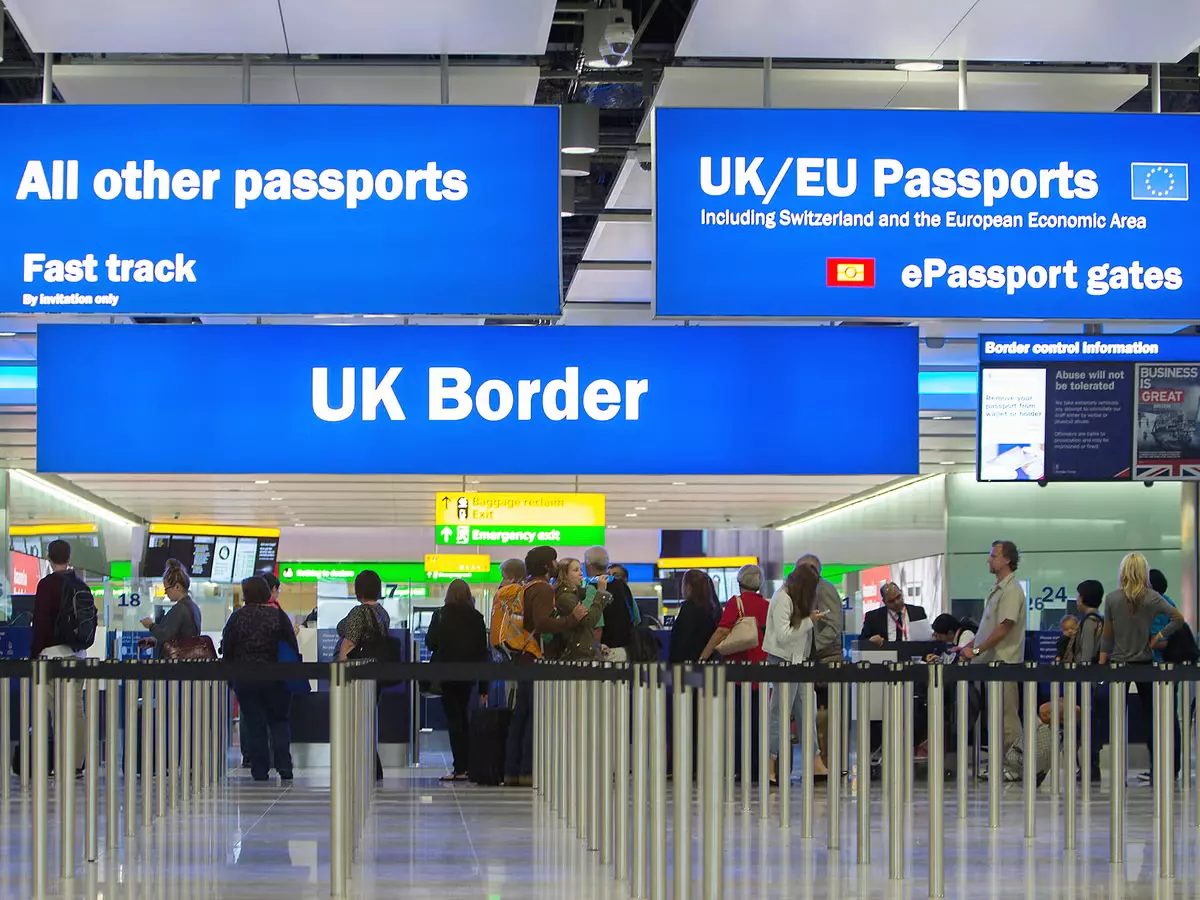Why are 'Golden Visas' a Hot Topic Among Global Investors in the EU?
Curious about 'Golden Visas' in Europe? Explore the EU nations extending this investment-based residency option. Understand the compelling reasons and benefits that drive investors to opt for 'Golden Visas,' facilitating a pathway to residency in these select European countries.

Rethinking Golden Visas: EU Pushes for Stricter Investment Criteria
Securing the right to reside and work in a foreign country typically involves a complex and lengthy process. However, for those with substantial financial resources, a quicker and more accessible route often exists.
Enter the realm of 'Golden Visas,' offering affluent individuals the chance to effectively 'purchase' residency rights, sometimes without the obligation to live in the host country. The allure of such visas is amplified in today's geopolitical landscape, where uncertainties like Brexit prompt people to seek alternative options that safeguard their rights and opportunities.
Especially in the European Union, the popularity of golden visas is on the rise as individuals seek stability amidst evolving political landscapes. Given the current unsettled political and social environment in the United States, the demand for golden visas from American applicants is projected to surge. Get Golden Visa, a passporting firm, anticipates a substantial increase in applications from Americans, predicting 2022 to be their busiest year yet.
However, golden visas are gradually facing phase-outs across Europe. Portugal recently contemplated discontinuing its scheme in February 2023, a decision met with criticism from the autonomous region of Madeira. Spain is also considering a similar move and has proposed stricter prerequisites for its own program.
In light of these changes, it's imperative to understand the essence of golden visa schemes and why the European Union has raised concerns regarding their safety and implications in recent months.

Read Also
Looking to Relocate? What Exactly is a Golden Visa and How Does It Work?
Residence by investment schemes, colloquially termed 'golden visas,' present individuals with a unique opportunity to obtain a residency permit in a specific country through various channels such as real estate investments, substantial financial contributions, or donations.
To qualify for such schemes, prospective applicants typically need to meet specific criteria. They must be at least 18 years old, possess a clean criminal record, and demonstrate sufficient financial capacity to make the requisite investment or contribution.
Expanding beyond residency, there's also a concept known as 'golden passports' or officially, 'citizenship by investment programs.' These programs provide a pathway for foreigners to not only attain residency but also acquire full citizenship within a country using similar investment avenues. This broader spectrum of opportunity can include investments in real estate, economic development projects, or direct financial contributions to the nation.
One significant advantage of these programs, particularly within the European Union (EU), is the access they offer to the benefits of EU residency. This encompasses the freedom of movement, granting individuals the ability to travel seamlessly across various EU member states, enhancing opportunities for business, education, and a higher quality of life. The appeal of this added mobility is a driving factor behind the increasing popularity of 'golden visas' and 'golden passports'.
Why Is the EU Questioning the Investor Citizenship Trend of Golden Visas?
In the year 2022, the European Commission took a significant step by urging EU member states to halt the practice of offering citizenship to investors. This move, distinct from golden visas that provide permanent residency but not citizenship, was part of a broader initiative to tighten regulations within the lucrative multi-billion euro industry. Amidst the aftermath of the Ukraine war, concerns were raised regarding the potential security risks associated with these investment-driven residency and citizenship schemes.
The European Commission emphasized the need for member states to conduct thorough screenings to ensure individuals sanctioned due to the war were not holders of golden passports or visas. Previously, the EU had voiced its apprehensions, citing these programs as posing risks to security, transparency, and the fundamental values that form the foundation of the European Union project.
Adding to the concerns, in October 2022, the European Commission specifically addressed Albania, urging the country to refrain from progressing with the development of an 'investors' citizenship scheme,' more commonly known as 'golden passports.'
The Commission's report underscored the various risks such a scheme could pose, including threats related to security, money laundering, tax evasion, terrorist financing, corruption, and infiltration by organized crime. Furthermore, it pointed out that such schemes were incompatible with EU norms, advocating for caution in their implementation.
Externally, the EU faced threats related to these programs. In the same month, the European Commission proposed a suspension of Vanuatu's visa waiver agreement due to the risks associated with their golden passport program. This program allows nationals of third countries to acquire Vanuatu citizenship, granting them visa-free access to Schengen zone countries, raising concerns about potential security and other risks outside the EU.
Which Countries Said Goodbye to Golden Visas?
In February 2022, the UK government made a significant move by discontinuing its golden visa scheme, a program that allowed affluent foreign nationals to settle in the country by investing a portion of their wealth. This decision was part of a larger effort to crack down on the influx of illicit funds, particularly from Russia, into the UK.
Following suit, in February 2023, Ireland also terminated its golden visa scheme known as the Immigrant Investor Programme. This program had been offering Irish residence in exchange for a substantial €500,000 donation or a three-year annual €1 million investment within the country.
The golden visa program in Ireland had already been suspended for Russian citizens in March 2022 due to sanctions imposed on Russia following the invasion of Ukraine. The European Parliament also raised concerns about potential tax abuse within the program, further advocating for its discontinuation. The decision to scrap the scheme was a result of a culmination of international reports and internal reviews.
In the same month, Portugal's Prime Minister António Costa announced plans to end the country's lucrative residence by investment scheme. This move was aimed at addressing property and rent price speculation. Until this change, foreigners had the option to either purchase property or invest a portion of their wealth - known as capital transfer investments - in exchange for residency.
Between January and August 2022, the program had contributed almost €398 million to the country, as reported by Portugal's national news agency LUSA. However, the autonomous region of Madeira, under the leadership of President Miguel Albuquerque, opposed the termination of golden visas in the region. He argued that the program had significantly boosted the local economy by attracting high-income foreign residents to Madeira.
Similarly, the Azores also resisted dropping the visa, citing the benefits it brought to their respective regions. Nonetheless, residency renewal conditions have become stricter, requiring the property to be used as a permanent residence or rented out long-term.
As of now, Malta remains one of the few countries in the EU still offering golden passports. The minimum investment amount for citizenship in Malta starts at €690,000, granting citizenship between 12 to 36 months.
While golden passports are limited, numerous EU countries continue to offer golden visa schemes. Below, we delve into the specific investment amounts required to attain residency through investment in these countries.
Italy
Italy stands as a prominent choice for individuals seeking residence through investment opportunities. The country introduced its golden visa program in 2017, providing a pathway for non-EU nationals to obtain a residence permit for a duration of two years in return for a qualifying investment within Italy.
To participate in this program, a minimum investment of €500,000 is required, and it must be facilitated through an Italian limited company. An attractive feature of this scheme is the provision to include family members in the visa application. Moreover, holders of these golden visas can take advantage of a special tax regime, optimizing their financial benefits.
One of the substantial benefits of this golden visa program is the potential path to Italian citizenship. After residing in Italy for a period of 10 years under this scheme, individuals become eligible to apply for citizenship, presenting a long-term opportunity for those looking to make Italy their permanent home.
This initiative has not only fueled investment into the Italian economy but has also attracted individuals and families seeking to immerse themselves in the rich cultural heritage and diverse experiences that Italy has to offer. The blend of a favorable investment environment, a chance for a prosperous future, and the allure of Italian lifestyle makes the golden visa program an enticing prospect for those aspiring to establish roots in this historically and culturally rich European nation.
Greece
Greece has emerged as a leading destination for individuals seeking a swift and efficient residency process through its golden visa program. Prospective foreign investors meeting the criteria can obtain a permit within an impressively short 60-day window from the date of application.
Historically known for having one of the lowest thresholds for investment, requiring just €250,000 investment in property, Greece took a strategic step in September to boost local affordability in the real estate market. The authorities increased the investment threshold to €500,000, a move aimed at striking a balance between attracting foreign investors and ensuring the accessibility of real estate for locals. This updated threshold, effective from 1st May 2023, specifically applies to the Greater Area of Athens, the Municipality of Thessaloniki, and the islands of Mykonos and Santorini, while the previous €250,000 threshold remains unchanged in other regions.
One key advantage of Greece's golden visa program is that holders are not obligated to reside in the country to maintain their visa status. This flexibility attracts international investors looking for a viable option for securing European residency without having to relocate permanently.
As of the end of 2021, Greece witnessed an impressive influx of interest in its golden visa scheme, recording a remarkable 9,500 applications for residence by investment schemes. This notable figure underscores the popularity and appeal of Greece's golden visa program, making it one of the most sought-after options for residency through investment within Europe. The program not only contributes to the growth of the Greek economy but also positions the country as an enticing destination for those seeking a hassle-free and efficient path to European residency.
Spain
In 2013, Spain initiated its renowned residence by investment program, aiming to attract foreign investors to bolster its economy. Government statistics indicate a substantial uptake, with nearly 5,000 permits issued since the program's inception. The scheme extends residency rights to foreigners and their families upon making a qualifying investment in the Spanish real estate market.
To acquire the coveted golden visa, a minimum investment of €500,000 in real estate is mandatory. While this investment threshold is higher than that of Portugal, Spain offers more flexibility in property choices, with fewer restrictions on the type of property that qualifies.
Beyond real estate investments, the golden visa can also be obtained through starting specific types of businesses in Spain, holding shares in Spanish companies, maintaining bank deposits worth a minimum of €1 million in Spanish financial institutions, or making a substantial government bond investment of at least €2 million.
However, Spain's residence by investment program has faced its share of criticism from various political quarters. In February 2023, the Más País party, a centre-left political group, presented a bill aiming to either abolish or significantly amend Spain's Residence by Investment program. The party voiced concerns over the program's impact on property prices and questioned its economic benefits.
Iñigo Errejon, the party leader, emphasized that 'Spanish citizenship cannot be bought' and criticized the golden visas for purportedly contributing to a steep rise in housing costs and displacing local residents. He argued that the scheme had not generated a significant number of new jobs.
Although an official agreement to terminate the golden visa scheme has yet to be reached, local media reports suggest that Spain is contemplating stricter requirements for applications. These potential changes include increasing the investment threshold to €1 million, considering the €500,000 minimum insufficient, especially in the context of luxury property prices.
Summary:
As the world grapples with shifting geopolitical landscapes and economic uncertainties, the appeal of 'Golden Visas' continues to grow among wealthy individuals aspiring for seamless international residency or citizenship. These visas, often tied to investment or contributions, present an expedited pathway for affluent investors to secure the right to reside in a foreign country or even attain full citizenship.
However, in the European Union (EU), a region at the forefront of global integration and cooperation, there's a growing scrutiny of these programs. The EU is critically assessing the implications of such 'Golden Visa' initiatives. The focus is on tightening regulations and ensuring these programs align with broader security and transparency objectives. Consequently, several EU member states are reevaluating their golden visa schemes, contemplating adjustments or reforms to strike a balance between attracting investment and maintaining stringent checks and balances.
For individuals navigating the complex landscape of global mobility and investment, comprehending the evolving dynamics of these visas is paramount. A deeper understanding of the varying investment thresholds, eligibility criteria, and potential reforms can significantly influence their decisions related to international relocation or investment ventures.
In a rapidly changing world, staying well-informed about the evolving policies and regulations surrounding golden visas equips individuals with the knowledge needed to make sound financial and strategic choices. Whether considering a move for personal, professional, or business reasons, being up to date with the latest developments in the golden visa landscape ensures a more informed and successful approach to international opportunities.






